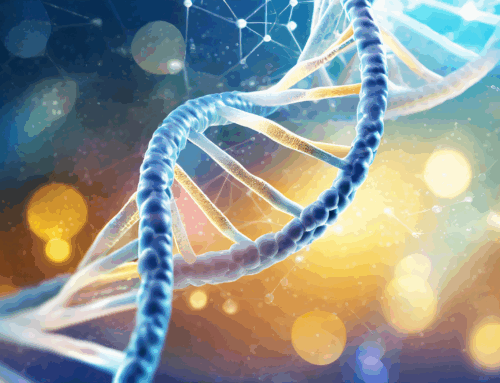Perimenopause, often referred to as the “menopausal transition,” is the phase that marks the shift from a woman’s reproductive years to menopause.
This stage can last anywhere from a few months to over a decade, typically beginning in a woman’s 40s but occasionally occurring in her 30s or earlier.
Perimenopause is characterized by fluctuating hormone levels, particularly estrogen and progesterone, leading to various physical and emotional symptoms.
What Is Perimenopause?
Perimenopause is the period leading up to menopause, the point when a woman has not had a menstrual period for 12 consecutive months. During this transition, the ovaries gradually reduce their production of estrogen and progesterone, causing the menstrual cycle to become irregular. The duration and intensity of perimenopause vary.
Common Symptoms of Perimenopause:
- Irregular periods: The menstrual cycle may become longer or shorter, with heavier or lighter bleeding
- Hot flashes and night sweats: Sudden feelings of warmth, often accompanied by sweating, are common and can disrupt sleep
- Mood changes: Women may experience anxiety, irritability, depression, or mood swings
- Sleep disturbances: Difficulty falling or staying asleep, often due to night sweats
- Vaginal dryness: A decrease in estrogen can lead to dryness and discomfort during intercourse
- Decreased libido: Lower hormone levels can affect sexual desire and function
- Cognitive issues: Women may notice forgetfulness or difficulty concentrating
- Weight gain and slowed metabolism: Hormonal fluctuations can contribute to weight gain, particularly around the abdomen
- Bone density loss: Reduced estrogen levels can increase the risk of osteoporosis
Given these symptoms, many women seek support not only from traditional medical professionals but also from holistic practitioners, naturopathic doctors, and functional medicine practitioners who offer complementary approaches to managing perimenopause.
How Holistic Practitioners and Naturopathic Doctors Help Women in Perimenopause
 Holistic practitioners and naturopathic doctors share common principles in addressing the root causes of perimenopausal symptoms, focusing on natural remedies and lifestyle changes to restore balance.
Holistic practitioners and naturopathic doctors share common principles in addressing the root causes of perimenopausal symptoms, focusing on natural remedies and lifestyle changes to restore balance.
While their approaches may differ from conventional medicine, their methods are designed to work alongside traditional treatments or as stand-alone interventions, depending on the woman’s needs.
Holistic Practitioners
Holistic practitioners view the body as a whole and believe that physical, mental, emotional, and spiritual health are interconnected. Their approach to treating perimenopause focuses on balancing the body’s systems through natural, non-invasive methods such as:
- Dietary modifications: Holistic practitioners often recommend personalized diets that decrease inflammation and increase adaptogens
- Herbal supplements: Popular herbs like black cohosh, red clover, and maca root are often used to ease symptoms such as hot flashes, mood swings, and sleep disturbances
- Mind-body practices: Yoga, meditation, reiki, and breathwork are commonly suggested to help reduce stress and anxiety, promoting emotional balance and improving sleep quality
- Emotional support: Custom Bach flower mixtures can realign emotions to help with mood swings and sleep
- Detoxification: Some holistic practitioners may advise gentle detox methods to clear out toxins that could be disrupting hormone balance, such as improving liver function through supplements like milk thistle
Naturopathic Doctors
Naturopathic doctors (NDs) combine natural therapies with scientific research to support women through perimenopause. Their approach is evidence-based and focuses on restoring balance through lifestyle and natural remedies:
- Hormonal support: NDs often use bioidentical hormone replacement therapy (BHRT), which involves hormones derived from plants that are chemically identical to the hormones produced by the body. BHRT can be a natural alternative to traditional hormone replacement therapy (HRT) for women seeking a gentler approach to hormone balancing.
- Nutritional interventions: Like holistic practitioners, NDs emphasize the importance of diet in managing perimenopausal symptoms. They recommend nutrient-dense foods and may prescribe supplements such as magnesium, vitamin D, and omega-3 fatty acids to support bone health, cognitive function, and mood stability.
- Herbal medicine: Naturopathic doctors also incorporate herbal remedies like black cohosh and dong quai to address specific symptoms like hot flashes, mood swings, or vaginal dryness
- Exercise and movement: Naturopathic doctors emphasize regular physical activity, especially strength training and weight-bearing exercises, to maintain muscle mass, support bone density, and boost mood. They may tailor exercise recommendations to suit a woman’s unique hormonal profile.
Addressing Emotional Well-being
Both holistic practitioners and naturopathic doctors recognize the emotional challenges that women often face during perimenopause. Women undergoing this transition are encouraged to nurture their emotional and mental health through:
- Therapeutic support: Counseling, mindfulness practices, and cognitive behavioral therapy (CBT) can help women manage anxiety, depression, or mood swings
- Community support: Group sessions, whether through yoga, meditation, or support circles, provide a sense of connection and validation that can be empowering for women experiencing similar symptoms
Integrating Approaches for Comprehensive Care
Women navigating perimenopause may benefit from a multi-disciplinary approach that includes both conventional medical treatments and natural therapies offered by holistic practitioners and naturopathic doctors. While conventional medicine may focus on hormone therapy, medications, and diagnostics, complementary approaches can help women achieve a greater sense of well-being and symptom relief without relying solely on pharmaceuticals.
The individualized care provided by holistic and naturopathic practitioners ensures that women feel heard and supported, with treatments tailored to their specific needs. Combining lifestyle modifications, herbal remedies, stress management techniques, and hormone support allows women to regain control over their health and well-being during this transitional phase of life.
In the End…
Perimenopause is a natural but often challenging stage for many women.
Through the guidance of holistic practitioners and naturopathic doctors, women can find relief from their symptoms by using natural remedies, nutritional support, and emotional care.
This integrative approach not only addresses the physical changes but also enhances overall well-being, empowering women to thrive during this transformative time.




